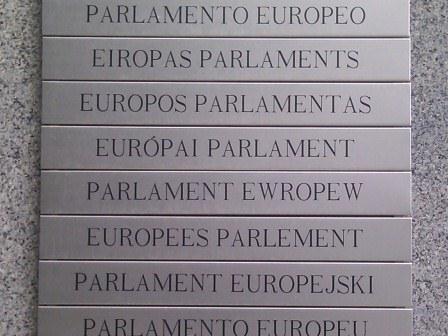Tech Evangelizing Among Small "d" Democrats

I was fortunate to have been looped into NDI's Transatlantic Dialogue program last weekend at the European Parliament in Brussels for the second round of high level talks that seek to strengthen democracy support cooperation between the United States and Europe. The theme for the meetings was reinvigorating democratic development – and the role of tech was recognized as an important contributor.
My mission: raise awareness among the democracy leaders about the changing and increasingly important role technology can play, and help encourage and inform forward-looking policies that better leverage the power of technologies toward democratic development.
The program couldn’t have come at a better time. In contrast to the first meeting last summer when the mood was gloomy as the democratic development leaders responded to several years of democracy backlash, recent events in the Middle East and North Africa make prospects for a democratic comeback look much more promising. The sense of hope and optimism in the room was palpable. Democracy and democratic development was back - there was even mention of a possible “fourth wave” of democratic development led by possible democratic transitions in the Muslim world, a reference to Samuel Huntington’s widely read book on the "third wave" that started in the mid-70s through the transitions following the end of the Cold War.
However, everyone in the room was aware that the current uprisings in Tunisia, Egypt and elsewhere signaled change, but not necessarily democracy. There is much work to do and a short window of opportunity for the democracy community to act. In a challenging budget environment for foreign assistance everywhere, cooperation and efficient use of limited resources among democracy groups was more important than ever.
My message was straightforward: technology can play an important role in democratic development but there were no guarantees that their impact would necessarily lead to more democracy. All that is certain is that technologies are changing the political dynamics in all countries as they are more widely adopted by citizens. What is uncertain is whether the application of these technologies becomes a net gain for democratic development – true in both democratic and non-democratic countries.
The adoption of these technologies can and do cut both ways. The democracy community needs to actively engage these technologies using well-honed approaches to strengthen democratic development and not assume the presence of the Internet, mobile phones or social networks alone will be adequate. Our role is to do all we can to ensure the new technologies are used for positive democratic development because as we're seeing increasingly in authoritarian and semi-authoritarian states in many places - regimes are using the same technologies, sometimes to great effect, to push back on democracy.
Mission accomplished? I think the message was clear and well received but there is still work to do. We’ll be introducing a paper outlining these concepts and adding language into the final reports that will reinforce the message. The meeting was a step forward for technology and democratic development, but ongoing awareness raising at the leadership level in the democracy circles is necessary.
